Attention-Deficit/Hyperactivity Disorder (ADHD) is a complex neurodevelopmental condition that affects individuals of all ages. Characterized by symptoms such as inattention, impulsivity, and hyperactivity, ADHD can interfere with academic, occupational, and social functioning. However, with the right treatment, individuals with ADHD can manage their symptoms effectively and lead fulfilling lives.
For those in Massachusetts, Foundations Group Behavioral Health provides comprehensive care through programs like Psychiatric Day Treatment, Half Day Treatment Program, and Outpatient Mental Health Program, ensuring tailored support for individuals seeking an ADHD Treatment Program.
ADHD: Symptoms and Impact
ADHD symptoms are typically categorized into three groups:
- Inattention
- Difficulty focusing on tasks or conversations
- Frequent mistakes or missed details in work or school
- Challenges in organizing tasks or managing time
- Hyperactivity
- Fidgeting or inability to sit still
- Excessive talking or interrupting
- A need to constantly move
- Impulsivity
- Acting without considering consequences
- Difficulty waiting for one’s turn
- Interrupting or intruding on others’ activities
The effects of ADHD vary by age. While children may struggle with school and peer relationships, adults often face challenges in the workplace, maintaining relationships, and managing responsibilities.
The Impact of ADHD on Daily Life
ADHD significantly influences various aspects of daily life, often making even routine tasks challenging. Individuals with ADHD may struggle with organization, time management, and maintaining focus, which can lead to missed deadlines at work or school. Relationships are also affected, as impulsive behavior and difficulty listening may create misunderstandings with family, friends, or colleagues.
Emotionally, ADHD can lead to feelings of frustration, low self-esteem, or shame when tasks are left unfinished. Financial challenges often arise as a result of impulsive spending or difficulty maintaining stable employment. Sleep disturbances are another common concern, further compounding issues like inattention and fatigue. Recognizing how ADHD impacts daily life is the first step toward finding effective strategies to manage these challenges and improve overall well-being.
Different Treatment Approaches for ADHD
1. Behavioral Therapy
Behavioral therapy is a cornerstone of ADHD treatment, focusing on modifying behaviors to improve daily functioning.
- Parent Training: Teaches parents strategies to create a structured environment, establish routines, and use positive reinforcement.
- Classroom Behavior Interventions: Teachers and parents collaborate to implement behavior management techniques in school settings.
- Social Skills Training: Helps individuals with ADHD navigate social interactions, resolve conflicts, and build meaningful relationships.
Behavioral therapy can be a key component of Behavioral Health Treatment Programs, ensuring comprehensive care.
2. Medication Management
Medication plays a significant role in managing ADHD symptoms by regulating brain chemicals that affect attention and behavior.
- Stimulants:
- Medications such as Adderall, Ritalin, and Vyvanse are highly effective, with up to 80% of patients showing improvement.
- They work by increasing dopamine and norepinephrine levels in the brain.
- Non-Stimulants:
- Alternatives like Strattera or Intuniv are ideal for individuals who cannot tolerate stimulants due to side effects or personal preference.
- These medications are slower acting but provide steady symptom control.
Regular monitoring and adjustments are essential, which is why Behavioral Health Treatment Centers often include medication management in their care plans.
3. Cognitive Behavioral Therapy (CBT)
CBT is a widely used therapeutic approach that addresses both the behavioral and emotional aspects of ADHD.
- Skill Building: CBT helps individuals develop organizational strategies, time management skills, and problem-solving techniques.
- Emotional Regulation: Teaches coping strategies to manage frustration, impulsivity, and anxiety, which are common in ADHD.
- Stress Reduction: Offers tools for managing the stress and overwhelm that often accompany ADHD symptoms.
CBT is frequently included in Outpatient Mental Health Programs, offering flexibility for individuals balancing daily responsibilities.
4. Lifestyle Modifications
Lifestyle changes can significantly enhance the effectiveness of ADHD treatments:
- Regular Exercise: Physical activity stimulates dopamine production, improving focus and reducing impulsivity.
- Balanced Nutrition: Diets rich in omega-3 fatty acids, lean proteins, and whole grains can support brain function and energy regulation.
- Sleep Hygiene: Establishing consistent bedtime routines can address the sleep disturbances often associated with ADHD.
Encouraging healthy habits is often part of Psychiatric Day Treatment programs, promoting long-term wellness.
5. Educational and Occupational Support
For children, individualized education plans (IEPs) or 504 plans ensure accommodations in school, such as extended test times or seating arrangements.
Adults may benefit from workplace strategies, such as task prioritization and time management tools, to improve productivity.
6. Group Therapy and Peer Support
Support groups provide a safe space for individuals with ADHD to share experiences, learn coping strategies, and gain encouragement. Group therapy is especially beneficial for children and teens, fostering social skills and peer connections.
The Impact of ADHD on Daily Life
ADHD significantly influences various aspects of daily life, often making even routine tasks challenging. Individuals with ADHD may struggle with organization, time management, and maintaining focus, which can lead to missed deadlines at work or school. Relationships are also affected, as impulsive behavior and difficulty listening may create misunderstandings with family, friends, or colleagues.
Emotionally, ADHD can lead to feelings of frustration, low self-esteem, or shame when tasks are left unfinished. Financial challenges often arise as a result of impulsive spending or difficulty maintaining stable employment. Sleep disturbances are another common concern, further compounding issues like inattention and fatigue. Recognizing how ADHD impacts daily life is the first step toward finding effective strategies to manage these challenges and improve overall well-being.
ADHD in Children vs. Adults: How Treatment Differs
ADHD manifests differently in children and adults, necessitating age-specific treatment approaches. In children, hyperactivity and impulsivity are more prominent symptoms, often leading to challenges in school settings and social interactions. Treatment typically includes behavioral therapy, such as parent training or classroom interventions, combined with medication when appropriate.
In adults, symptoms like inattention, disorganization, and difficulty maintaining focus are more pronounced. These issues may interfere with workplace performance, relationships, and financial management. Adult treatment often includes coaching, time-management training, and counseling to address life skills alongside medication. The shift from childhood to adulthood underscores the importance of adapting treatment plans to address evolving needs and challenges as individuals grow older.

How Families and Caregivers Can Support Individuals with ADHD
Families and caregivers play a crucial role in supporting individuals with ADHD by creating a structured and nurturing environment. Establishing consistent routines can help reduce overwhelm and improve task completion. Clear communication is essential, as individuals with ADHD may struggle to process lengthy or complex instructions.
Encouragement and positive reinforcement go a long way in boosting self-esteem and motivation. Families should also educate themselves about ADHD to better understand the condition and avoid unrealistic expectations. For children, collaborating with teachers to implement accommodations at school is key. For adults, offering emotional support and helping with organization can make a significant difference.
Support groups and family therapy can also help caregivers process their own emotions while fostering stronger relationships. By working together, families can create an environment where individuals with ADHD feel empowered and understood.
Barriers to ADHD Treatment and How to Overcome Them
Accessing ADHD treatment can be challenging due to various barriers. Stigma surrounding mental health often prevents individuals from seeking help, while misconceptions about ADHD may lead to delayed diagnoses or inadequate care. Financial constraints, such as the cost of therapy or medication, can also limit access.
Geographical barriers are another issue, particularly in rural areas where mental health services may be scarce. Additionally, navigating healthcare systems to find appropriate providers or treatment programs can feel overwhelming.
To overcome these challenges, education is essential. Raising awareness about ADHD and reducing stigma can encourage individuals to seek help. Many communities offer low-cost or sliding-scale services to make treatment more accessible. Telehealth services are also expanding, enabling individuals in remote areas to connect with specialists.
Advocating for systemic changes, such as increased insurance coverage for ADHD treatment, can also help address financial barriers. By identifying and tackling these obstacles, individuals and families can ensure access to the care they need to thrive.
Benefits of ADHD Treatment Programs
Structured programs like Half Day Treatment Programs offer targeted care by combining multiple treatment modalities. Benefits include:
- Comprehensive Support: Therapy, medication management, and lifestyle guidance are integrated into one cohesive plan.
- Flexibility: Half-day and outpatient options allow individuals to balance treatment with work, school, or family responsibilities.
- Personalized Care: Treatment plans are tailored to each individual’s unique needs and challenges.
When to Seek Professional Help
It’s time to seek professional ADHD treatment if:
- Symptoms significantly interfere with school, work, or relationships.
- Behavioral strategies and lifestyle changes are not sufficient.
- Co-occurring conditions, such as anxiety or depression, exacerbate ADHD symptoms.
Programs like those at Foundations Group Behavioral Health can provide the necessary support to manage ADHD effectively.
The Importance of Professional Support
Managing ADHD is a lifelong journey, but professional guidance can make all the difference. At Foundations Group Behavioral Health, we specialize in programs designed to address ADHD and other mental health challenges, including:
- Psychiatric Day Treatment
- Half Day Treatment Program
- Outpatient Mental Health Program
Through our comprehensive ADHD Treatment Program, individuals can build the skills and confidence needed to thrive.
Taking the First Step
ADHD can present challenges, but with the right support, individuals can achieve their full potential. If you or a loved one is struggling with ADHD, contact Foundations Group Behavioral Health to learn more about our specialized programs. Contact us today at 508.388.5324 to book your first session and begin your journey toward a more mindful future.
FAQ on Different Treatment Approaches for ADHD
What are the main challenges of living with ADHD?
ADHD can affect focus, time management, organization, and emotional regulation. It often impacts academic, professional, and personal relationships, leading to frustration and stress if left unmanaged.
How is ADHD treated in children versus adults?
In children, treatment often includes behavioral therapy and classroom strategies, while adults may benefit from life skills training, counseling, and medication. Treatment is tailored to age-specific symptoms and challenges.
How can families support someone with ADHD?
Families can create structured routines, use clear communication, and provide positive reinforcement. Educating themselves about ADHD and seeking therapy or support groups can also help improve their relationship and understanding.
Why do some people face barriers to ADHD treatment?
Barriers include stigma, financial constraints, limited resources in rural areas, and difficulty navigating the healthcare system. Raising awareness and leveraging telehealth or community resources can help overcome these challenges.
Can ADHD symptoms change over time?
Yes, symptoms often evolve with age. For example, children may exhibit more hyperactivity, while adults tend to struggle with inattention and executive functioning issues. Treatment plans should adapt accordingly.








